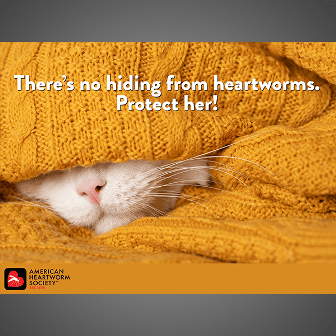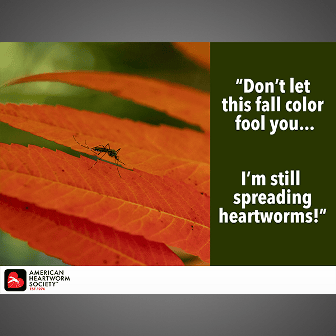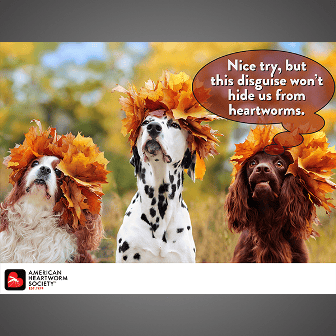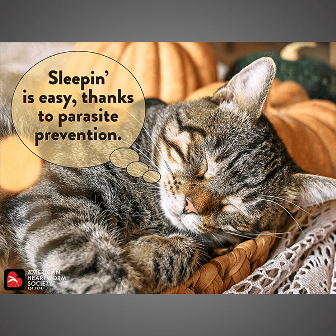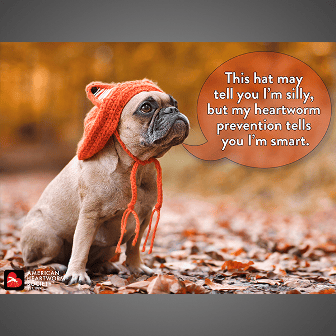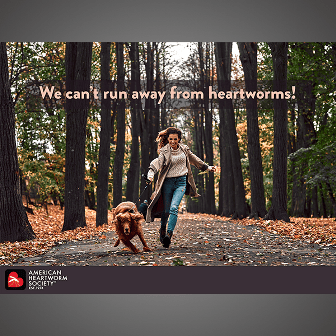- For both dogs and cats, clinical signs of heartworm disease may not be recognized in the early stages, as heartworms tend to accumulate gradually over a period of months and sometimes years and after repeated mosquito bites.
- In dogs, recently infected animals may exhibit no signs of the disease, while heavily infected animals may eventually show clinical signs, including mild, persistent cough, reluctance to move or exercise, tiredness after only moderate exercise, reduced appetite, and weight loss.
- Very active or working dogs can show the above clinical signs of disease with only a few worms present.
- In dogs, severe cases of the disease may lead to heart and lung failure, most often recognized by a “swollen belly” caused by accumulation of fluid in the abdomen.
- "Caval Syndrome," a form of liver failure, is also a potential serious complication, causing dogs to become weak very rapidly and turning their urine dark brown. This is a life-threatening situation that prompts surgical removal of the worms.
- Cats may exhibit clinical signs that are very non-specific, mimicking many other feline diseases. Chronic clinical signs include vomiting, gagging, difficulty breathing or rapid breathing, lethargy and weight loss.
- Infected cats may die acutely without allowing time for diagnosis or proper treatment.
When warm weather hits, you will want to ramp up your heartworm education efforts. To help make this goal easy--and fun--the AHS has created a new set of posters to print or post on your social pages.
- To save or print a poster, just click on the image below, then click on the “download” button and save the PDF file.
- To save a poster for use on your social pages, simply open the downloaded poster, then right click on the file and follow the menu instructions to save the file as a JPEG image.
For more client tools, be sure to visit the Resource Center. And if you don’t already, make sure you’re sharing our Facebook and Instagram posts!


